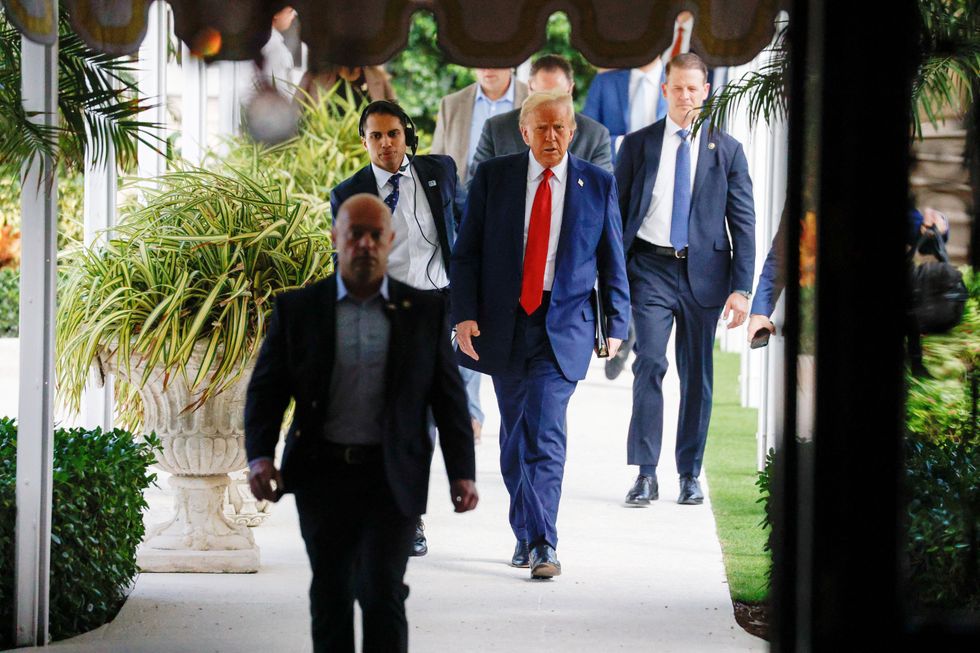On Monday, the Trump administration filed arguments with the Supreme Court asserting that no judicial body, including the Supreme Court, can challenge the President’s authority to deploy military troops within the United States. Trump’s legal team contended that the decision to mobilize the National Guard is a fundamental exercise of presidential power as Commander in Chief, backed by explicit congressional delegation.
The court filing stated, “The President’s determination to call up the National Guard is a core exercise of his power… That determination is not judicially reviewable at all.” The President’s attorneys referenced a case from 1827, Martin v. Mott, which addressed the War of 1812. They claim it supports the notion that military decisions made by the President should not be questioned. However, historical context indicates the case did not discuss judicial review and was misinterpreted in the current arguments.
Public sentiment largely opposes the use of military forces in domestic situations. A significant majority of Americans, spanning various political affiliations, are against deploying troops in U.S. cities without a foreign threat. This resistance is rooted in historical experiences, notably during the Revolutionary War, when colonists faced military oppression from British troops. The U.S. Constitution reflects this apprehension, granting Congress the authority to mobilize the National Guard for specific reasons, including “to execute the Laws of the Union, suppress Insurrections and repel Invasions.”
The legal framework supporting this authority includes Title 10 USC 12406, which stipulates conditions under which the President may call forth the militia. Additionally, the Posse Comitatus Act prohibits the use of federal armed forces to enforce laws unless expressly authorized. This legislation echoes a long-standing national aversion to military involvement in civilian matters.
In their arguments, Trump officials cited extreme violence against Immigration and Customs Enforcement (ICE) agents, claiming they face daily threats that necessitate military support. The administration described scenarios involving ambushes and attacks on federal agents in Illinois, suggesting a pervasive climate of fear among these personnel. Notably, these assertions have faced scrutiny, as eyewitness accounts and video evidence often contradict the official narratives.
For instance, claims that ICE vehicles were attacked have been challenged by footage showing federal agents initiating confrontations. A Border Patrol commander acknowledged that he was not struck by a projectile until after the deployment of tear gas at a protest, contradicting earlier assertions about the order of events. Furthermore, reports of a dramatic rise in assaults on ICE agents have not been substantiated by public evidence, raising questions about the accuracy of the administration’s claims.
The debate over Trump’s authority to deploy the National Guard has reached the Ninth and Seventh Circuit Appellate courts, both of which rejected the argument that such military deployments are beyond judicial scrutiny. These courts emphasized that the plain text of the relevant statutes outlines specific conditions that must be met prior to deployment. The Seventh Circuit ruling is now under review by the Supreme Court, which has requested additional briefing on the implications of 10 USC 12406(3), particularly regarding the President’s ability to act when “unable with the regular forces to execute the laws of the United States.”
The potential consequences of this legal battle are significant. Trump’s assertion that his military actions are beyond judicial review raises concerns about the implications for civil liberties and the balance of power within the government. As the Supreme Court weighs this case, the outcome could have lasting effects on the relationship between federal authority and individual rights, especially in the context of domestic unrest.
Sabrina Haake, a legal expert with over 25 years of experience, emphasizes that this case raises critical issues regarding the limits of presidential power and the protection of civil liberties under the Constitution. The judicial response will play a crucial role in determining the future of military authority in domestic matters.
